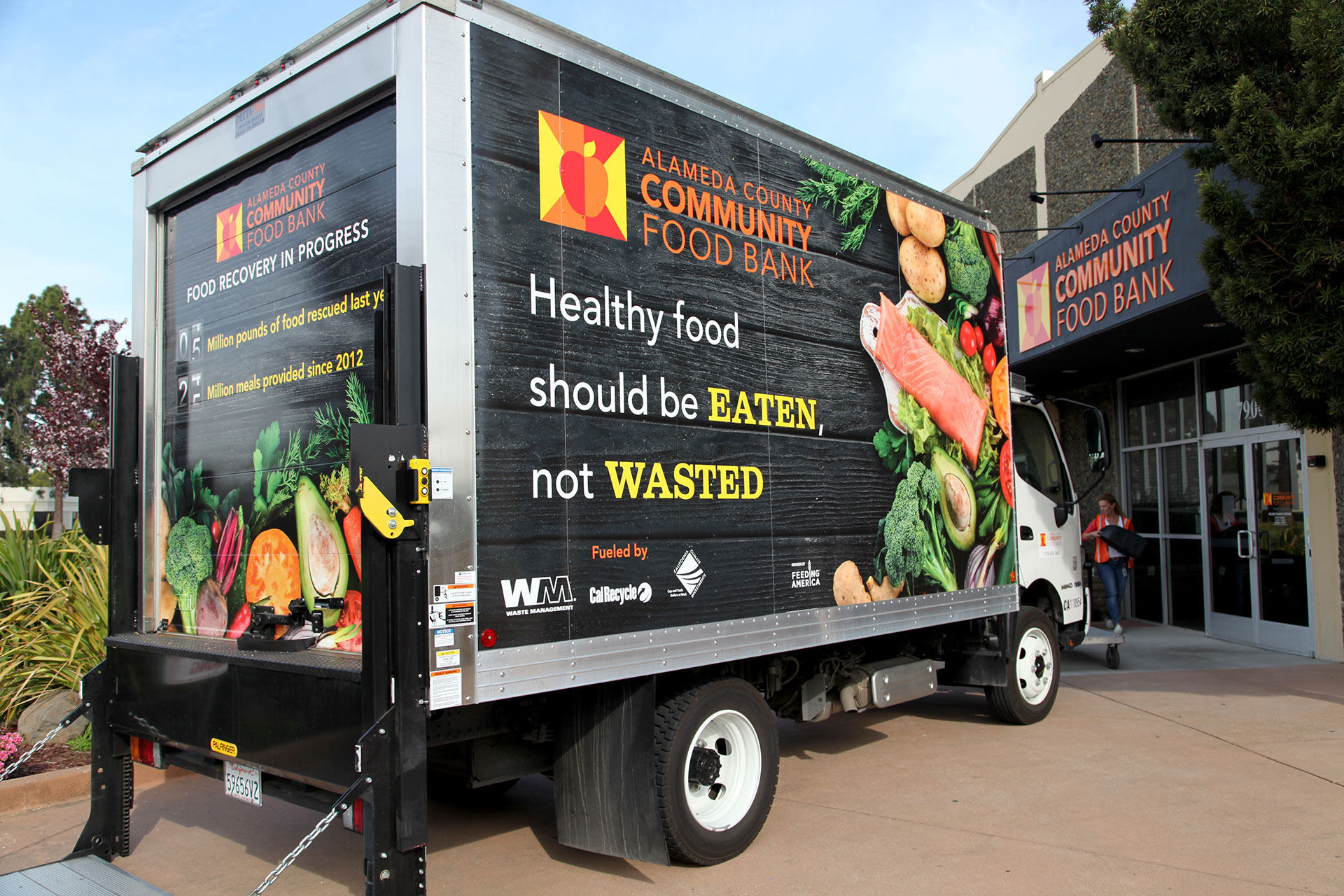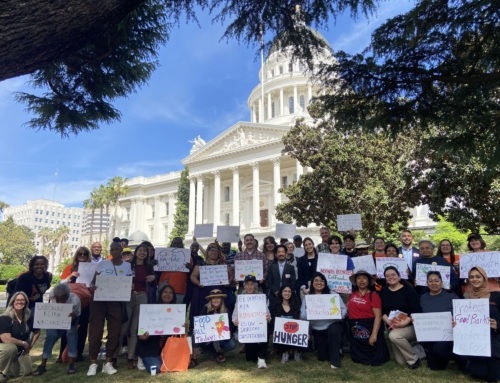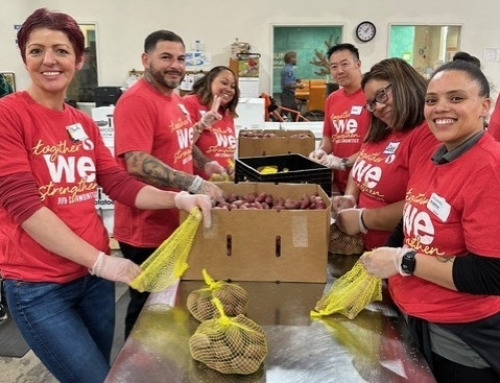When it comes to healthy food, we believe it should be eaten – not wasted. That’s why you’ll see that statement in bold letters on the side of our new Food Recovery truck.
The addition of this hybrid truck (the first in our fleet!), is thanks to funding from CalRecycle, secured by Waste Management of Alameda County. It will help provide more than 830,000 additional meals every year to 1 in 5 Alameda County residents experiencing or at risk of hunger.
“The brilliance of this truck is that it will help the Food Bank recover 1 million more pounds a year, so that food can feed people rather than polluting the air,” Sen. Nancy Skinner said during a ceremony at ACCFB. “This is an incredible day to enhance food security and help our climate pollution problem.”
Oakland City councilmember Dan Kalb and representatives from the offices of Congresswoman Barbara Lee, State Assemblyman Rob Bonta, and Alameda County Supervisors Wilma Chan and Keith Carson also attended the ceremony, underscoring the critical role ACCFB plays in both hunger-relief and sustainability efforts.
The expansion of our Food Recovery Program (FRP) by adding this truck comes ahead of the implementation of California State Senate Bill 1383, which establishes a 75 percent reduction of organic waste ending up in landfill by 2025 – and an additional target of at least 20 percent reduction of edible food waste to be rescued for consumption instead. Food Banks are key partners in the success of this greenhouse gas-reduction bill.
“Environmentally conscious partnerships, like the one between Alameda County Community Food Bank and Waste Management, make our communities healthier by feeding Californians in need and reducing organic waste that contributes to climate change when it decomposes in landfills,” Ken DaRosa, CalRecycle Acting Director, said.
Expanding FRP is a core part of our efforts to serve our community. The Food Bank already serves as the largest food recovery organization in Alameda County, recovering more than 10 million pounds of healthy, surplus food from manufacturers and retailers every year.
Since it launched in 2012, FRP has provided the equivalent of more than 24 million meals.
We estimate the food we redirect to neighbors’ tables through FRP will have the environmental impact of taking 1,000 cars off Bay Area roads each year.
“It’s partnerships like this one – with Waste Management, CalRecycle, grocers, and our committed network of agency partners – that demonstrate meaningful and impactful solutions to hunger are possible,” Suzan Bateson, ACCFB Executive Director, said.





